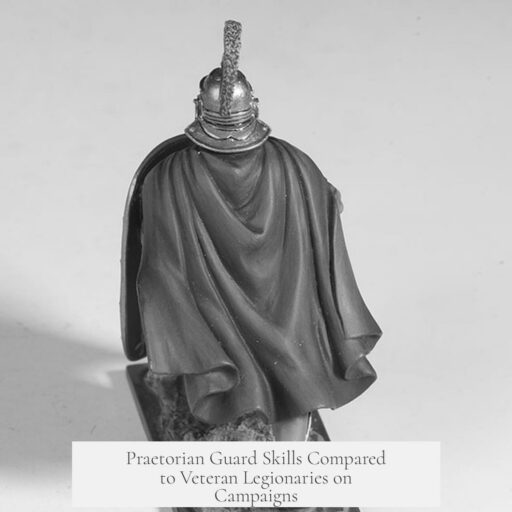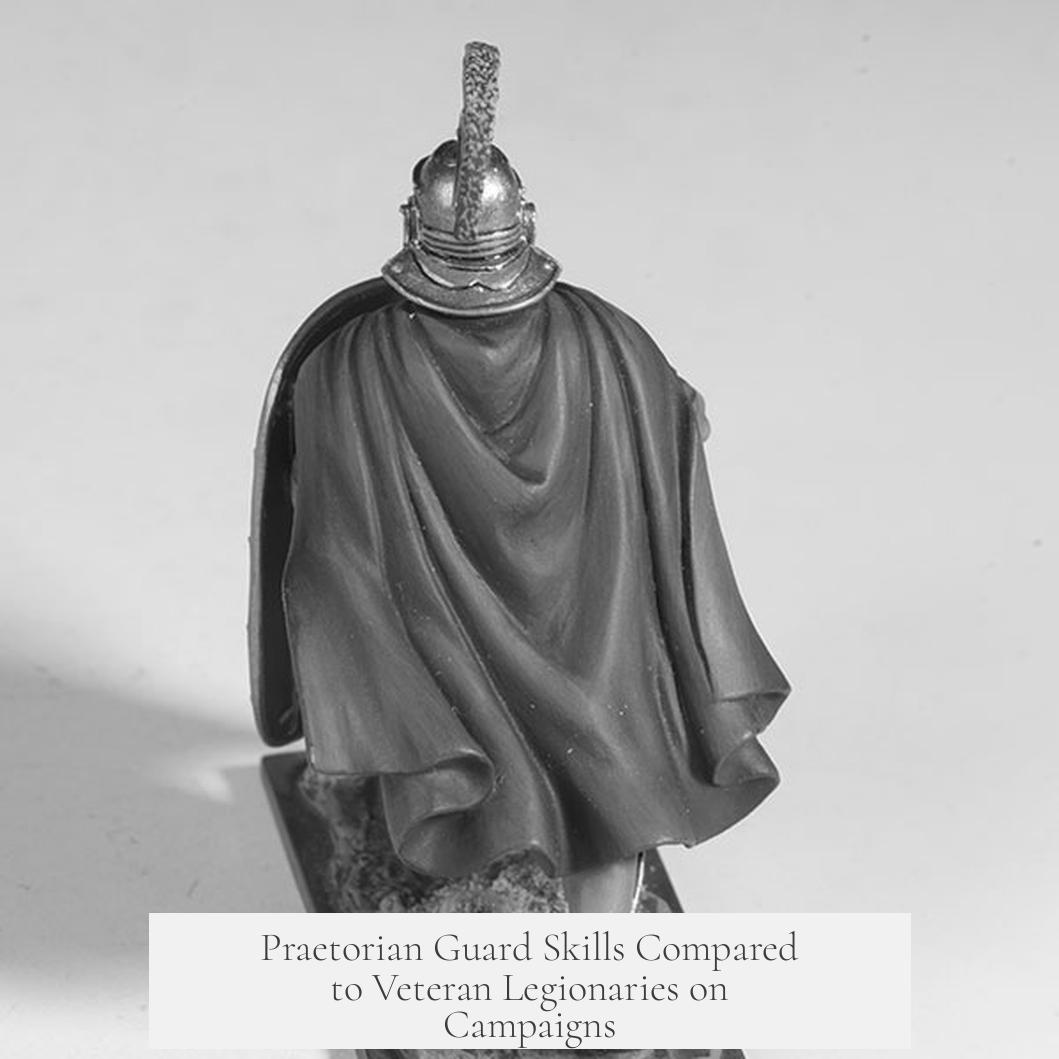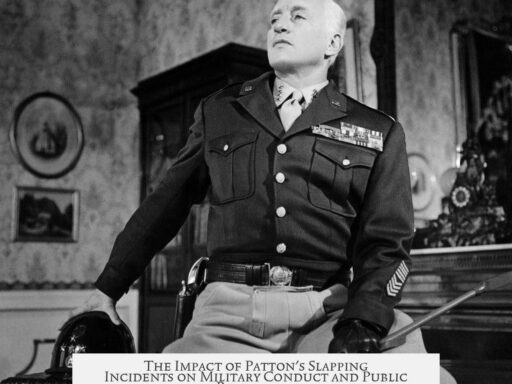The Praetorian Guard’s skill level was initially comparable to that of veteran legionaries serving on campaign or dangerous frontiers. Recruited from seasoned legionaries in Italy, they matched regular legionaries in capability. However, their proficiency fluctuated over time due to changes in recruitment, discipline, and purpose.
Originally, the Praetorian Guard consisted of well-trained legionaries carefully selected for their capability. Their training and combat readiness mirrored that of legionaries operating on critical frontiers. Physically, the Praetorians were often larger and more imposing, but individual combat prowess was less emphasized due to Rome’s reliance on disciplined formation fighting rather than one-on-one duels.
Over time, the Guard’s quality declined as they became increasingly focused on political influence and financial rewards. This decadence peaked when a faction within the Guard assassinated Emperor Pertinax and auctioned the imperial throne, showing less interest in military engagement and more in personal gain. Their reluctance to fight when faced with conflict further demonstrated their diminished combat effectiveness.
Recognizing this decline, Emperor Septimius Severus reformed the Guard by enlarging its ranks and recruiting veterans from provincial legions rather than Italy alone. This approach significantly enhanced their effectiveness, restoring their standing as elite troops capable of matching veteran legionaries from dangerous campaigns.
Later, as Rome’s political and military centers shifted and diminished under emperors like Diocletian, the Guard’s importance and skill level eroded. They became more ceremonial and less central in military matters, with similar units replacing their function in protecting emperors.
| Aspect | Praetorian Guard | Veteran Legionary |
|---|---|---|
| Initial Skill | Comparable, well-trained from Italian legionnaires | Highly skilled, trained for frontier warfare |
| Combat Focus | Formation fighting, less one-on-one combat | Formation and individual survival skills |
| Later Skill | Declined due to decadence but restored under Severus | Consistently high on campaigning frontiers |
| Role | Imperial bodyguard, political influence | Combat on dangerous frontiers |
- The Praetorian Guard started as elite troops comparable to veteran legionaries.
- They emphasized formation tactics over individual combat skill.
- Their combat effectiveness declined with political corruption but improved after reforms recruiting provincial veterans.
- They eventually lost military importance as Rome’s political center shifted.
How Skilled Was the Praetorian Guard Compared to Veteran Legionaries on the Frontier?
Were the Praetorian Guard as skilled as seasoned legionaries in harsh campaigns and dangerous frontiers? The answer is nuanced: originally, they were quite comparable, but their skill and effectiveness waxed and waned over time due to politics, discipline, and recruitment methods.
The Praetorian Guard started off as elite, tough soldiers. They were handpicked legionaries from Italy, already trained and battle-hardened, transferred from the very ranks of the famed Roman legions. This made them every bit as capable as the average legionary deployed on the frontlines. But instead of guarding a frontier or storming a hill, their mission was closer to home—protecting the Emperor and Rome itself. Still, initial recruitment ensured a strong baseline.
Did they fight like frontier veterans? Probably yes, at least at first. These men could march, hold formation, and wield their gladii with precision. They operated within the classic Roman legion system which emphasized formations and unit cohesion over flashy one-on-one duels. Being physically imposing helped, but muscle didn’t substitute for tight discipline and tactical synchronization.
Over time? Things changed. The Praetorian Guard fell victim to what many famous forces do—decadence. As their proximity to the Emperor brought comfort and lavish donatives, their motivation shifted. Instead of honing combat skills, many craved perks and bribes. Historical drama peaked when they assassinated Emperor Commodus and later sold the imperial throne to the highest bidder, Pertinax’s successor. Talk about turning a guard into a political mess.
That’s a far cry from the legionary manning dangerous fringes like Germania or Britannia, braving harsh climates and tough battles daily. These frontier veterans endured grueling marches, skirmishes, ambushes, and sieges. They learned to improvise, toughen up, and outlast enemies in brutal conditions, which the more comfort-loving Praetorians eventually did not match.
Moreover, when the Praetorians were forced back into drill after periods of indifference, they reportedly hesitated. They avoided battle, and in the aftermath, many conspirators involved in Pertinax’s death were handed over while the rest were banished, highlighting their diminished fighting spirit.
Enter Septimius Severus, who saw the guard’s tarnished reputation and set out to restore it. He expanded its ranks, filling it with loyal veterans—not just Italians, but seasoned soldiers from the provinces as well. These recruits brought frontline experience to the Praetorian ranks, elevating their capabilities once again.
This reform mirrored a kind of military reboot. After all, provincial veterans were battle-hardened from frontier duty, bringing toughness and resilience. Following these changes, the Praetorian Guard regained a reputation for effectiveness, discipline, and loyalty. A sort of “Praetorian Renaissance,” if you will.
Still, even at their best, their role was distinct from legionaries in campaign. Guard duty involves tight formations and rapid response inside or near the capital—not months-long campaigns on hostile frontiers where survival depends on adaptability and endurance. Praetorian emphasis remained on formation fighting, not individual prowess.
As centuries marched on, Rome’s political landscape evolved. The city itself lost importance as a military hub, especially under Diocletian, who moved the empire’s center eastward. The Praetorian Guard slowly declined in prestige and operational significance. New elite units accompanied emperors on tours and battles, effectively replacing the traditional Praetorians.
So, how to sum up the skill comparison? Initially, the Praetorians were as skilled as any legionary—maybe even physically superior. But constant comfort, court intrigue, and political power plays eroded their fighting edge. Dedicated veterans on the frontier likely held an edge in endurance, combat readiness, and survival skills gained in grueling campaigns. Yet, with strategic reforms, specifically Severus’ recruitment drive, the Praetorian Guard bounced back to respectable martial heights.
Here’s why this matters: military skill isn’t static. Context shapes combat readiness. The Praetorian Guard started as elite fighters, became indulgent and politicized, then regained strength thanks to prudent reforms. Their unique role—combining protection, political influence, and battlefield capability—made them different from frontline legionaries, who lived and died by harsh campaigns.
If you’re fascinated by Roman military history, this tale offers a rare glimpse of how soldiers born from the same mold can diverge dramatically based on their environment and duties. Are soldiers guarding emperors doomed to decline? Or can smart leadership revive them? Septimius Severus proves the latter.
| Aspect | Praetorian Guard | Veteran Legionary (Frontier) |
|---|---|---|
| Initial Skill Level | Comparable to regular legionaries, elite in composition | Highly skilled, battle-hardened through campaigns |
| Recruitment | Initially from Italian legionaries, later from provincial veterans | From frontier campaigns, with extensive combat experience |
| Primary Role | Imperial protection, maintaining order in Rome | Campaign combat on dangerous frontiers |
| Combat Style | Formation fighting, less emphasis on one-on-one combat | Formation plus adaptability to varied combat situations |
| Decline Factors | Decadence, political involvement, reliance on bribes | Constant exposure to combat, evolving battlefield skills |
| Reform and Revival | Expanded by Severus with loyal veterans, regained capability | Consistent skills maintained through frontier challenges |
| Long-term Importance | Declined as Rome’s political relevance shifted | Remained core of Roman military might on frontiers |
Rome’s military story sometimes feels like a soap opera—full of intrigue, power shifts, and transformations. The Praetorian Guard embodies this drama perfectly. They are a lesson in how the role you play shapes your skills—and how leadership can either make or break an elite force.
Curious what this means for today’s elite units? The balance between guarding the powerful and maintaining frontline grit isn’t easy. History nudges us to consider: can modern guards balance loyalty, discipline, and combat readiness? Or will temptation for shortcuts always weaken their edge?




